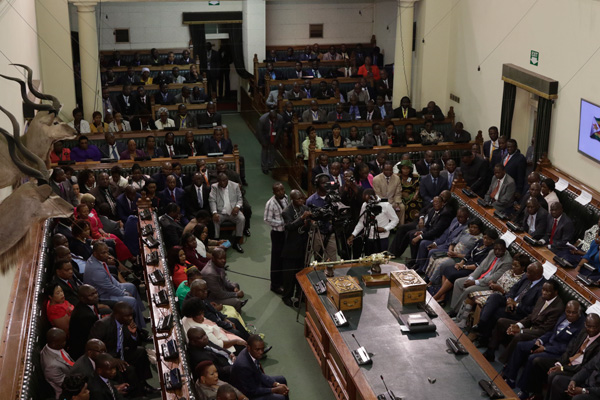
THE Cyber Crimes and Cyber Security Bill, currently at the Attorney-General’s Office for drafting, will criminalise the leaking or publishing of nude pictures of former lovers on social media or online, among other minor changes to the proposed law after public consultations.
BY PAIDAMOYO MUZULU
The Bill is being steered by the Information Communication Technology, Postal and Courier Services ministry to combat cybercrime such as electronic money laundering, terrorism, hacking, child pornography and identity theft.
It was originally called Computer and Cyber Crimes Bill.
The ministry’s legal adviser, Loveness Ngwangwa, confirmed the changes at a public meeting in the capital organised by the Media Institute of Southern Africa Zimbabwe Chapter.
“From the consultations that were held in Harare and Bulawayo on the draft Bill, there were calls for a clause to deal with revenge pornography and the ministry has listened and incorporated that,” she said.
Revenge porn refers to the act of a partner or ex-partner purposefully distributing images or videos of a sexual nature without the other person’s consent.
This has become common in Zimbabwe, particularly on social media where someone has been jilted.
- Chamisa under fire over US$120K donation
- Mavhunga puts DeMbare into Chibuku quarterfinals
- Pension funds bet on Cabora Bassa oilfields
- Councils defy govt fire tender directive
Keep Reading
Zimbabwe has been awash with cases of revenge porn.
Popular socialite and Zimbabwe’s former Big Brother housemate, Pokello Nare was a victim of sleazy sex tape leak with musician Desmond Chideme, popularly known as Stunner.
Former TV personality, Tinopona Katsande was also a “victim” of infamous sex tapes and since then has been fronting campaigns to influence criminalisation of non-consensual distribution of sexually explicit material.
Another victim of revenge porn was former Miss Zimbabwe Emily Kachote, who was dethroned after her nude pictures were reportedly leaked.
The other two notable changes to the Bill involve the removal of clauses on general pornography, the criminalisation of child pornography and the removal of the assistance clause.
“General pornography is no longer in the Bill, but that does not mean it is legal,” Ngwangwa said.
“We have now concentrated on child pornography. The assistance clause is now no longer there, but remember we are only talking about a draft and changes can still be made.”
The assistance clause caused a lot of anger among media activists and the general public, as they felt people would have been compelled to assist law enforcement agents to unlock their spouses’, friends’ or relatives’ electronic gadget.
Failure to assist was criminalised.
Misa-Zimbabwe director, Nhlanhla Ngwenya said: “Some bad provisions have gone, but we are still to do a full stocktake of the new Bill, which has been rechristened.”
The Bill was sent to the AG’s Office in June and drafting is expected to be completed by September before being gazetted for debate in Parliament.











